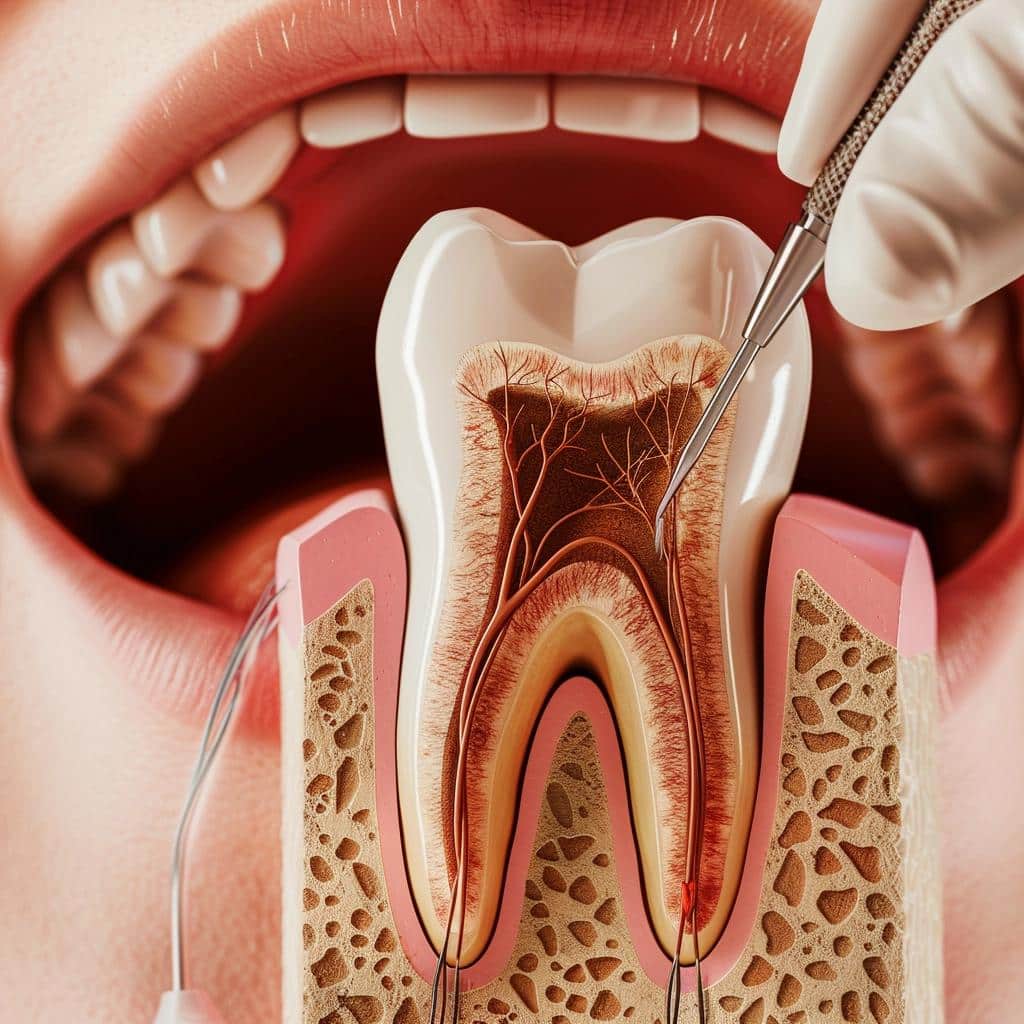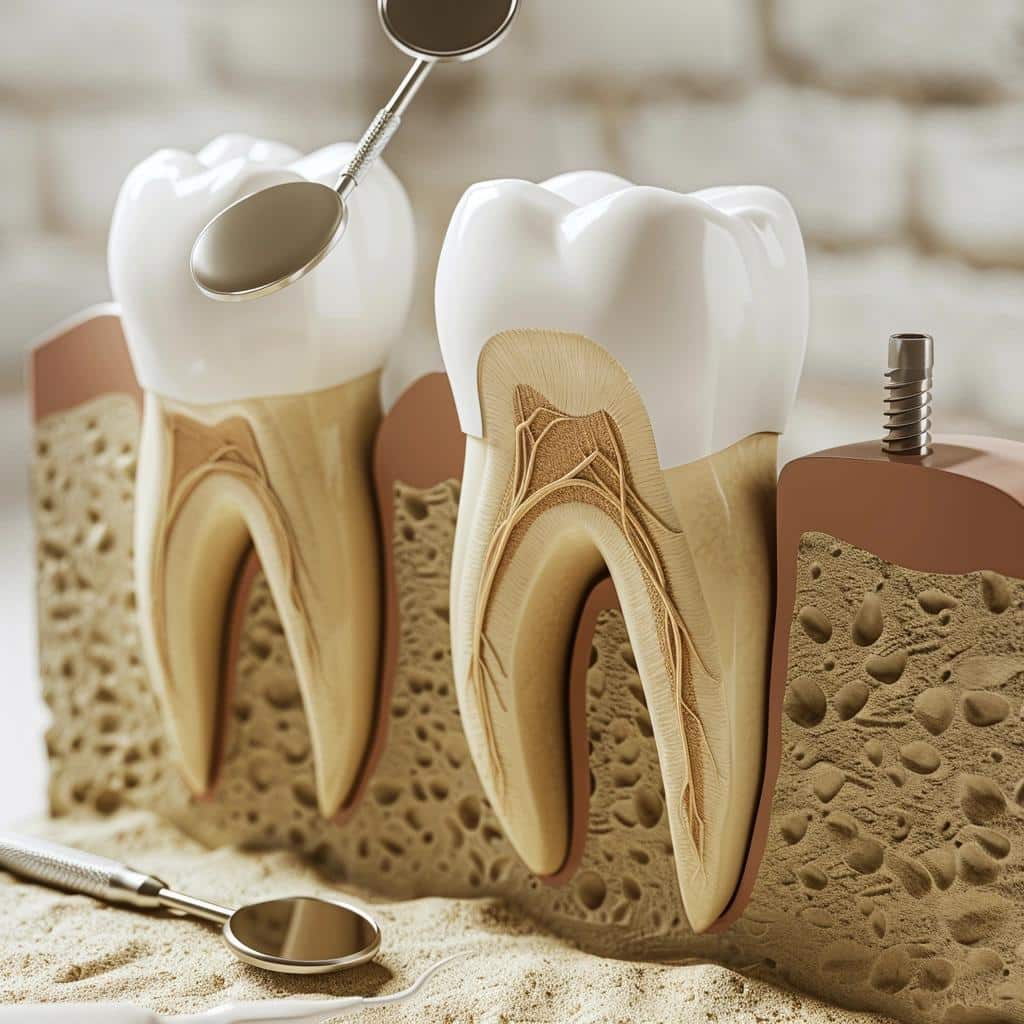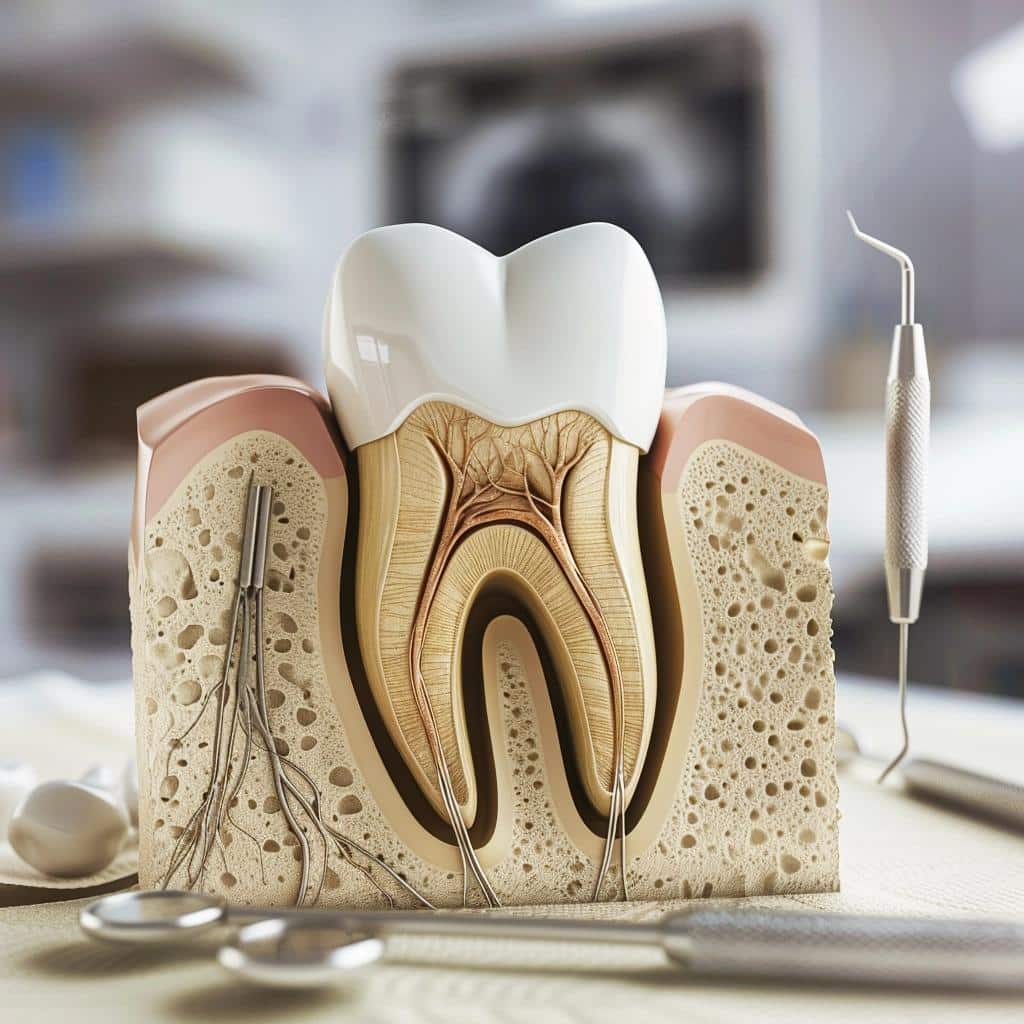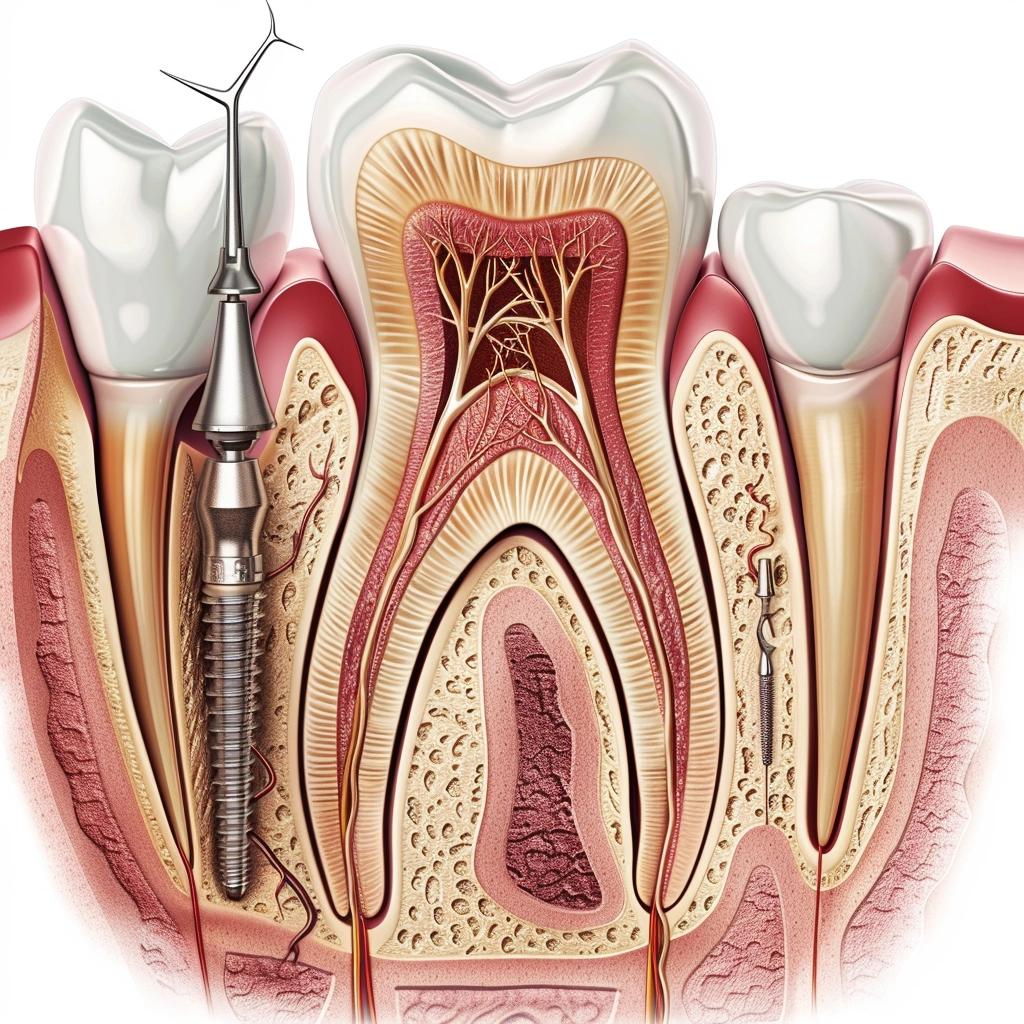Root canals are a common dental procedure that can prolong the life of your natural teeth. If you’re facing this treatment, you may be wondering, “How long do root canals last?” The answer isn’t always straightforward, as it depends on several factors. However, with proper care and maintenance, you can maximize the lifespan of your root canal and enjoy your smile for years to come.
Key Takeaways
- A root canal treats the inner pulp of a tooth to save it from extraction, with an average lifespan of 10-15 years.
- Factors like the quality of the root canal, your oral hygiene, and avoiding excessive pressure can significantly impact its longevity.
- Regular dental check-ups, proper oral hygiene, and addressing any signs of failure can help prevent complications and prolong the life of your root canal.
What is a Root Canal Treatment?
Understanding the Procedure
A root canal, also known as endodontic treatment, is a procedure that removes the infected or inflamed pulp (the soft inner tissue containing nerves and blood vessels) from within a tooth. This is typically necessary when the pulp becomes damaged due to deep decay, repeated dental procedures, or a crack or chip in the tooth.
When is a Root Canal Needed?

Root canals are recommended when the pulp becomes infected or inflamed, often causing severe toothache, sensitivity to hot or cold temperatures, or even an abscess (a pocket of pus). Without treatment, the infection can spread to other areas, leading to more serious issues. A root canal aims to save the natural tooth by removing the diseased pulp and sealing the inner chamber to prevent further infection.
How Long Do Root Canals Last?
Average Lifespan
On average, a properly performed root canal can last 10 to 15 years. However, this lifespan can vary greatly depending on several factors. With proper care and maintenance, some root canals can last a lifetime, while others may fail sooner.
Factors Affecting Longevity

The longevity of a root canal is influenced by various factors, including:
- Quality of the root canal procedure: A skilled endodontist (root canal specialist) and high-quality materials can significantly increase the chances of success.
- Remaining tooth structure: Teeth with more remaining healthy structure tend to have better long-term prognosis.
- Oral hygiene: Proper brushing, flossing, and regular dental check-ups are crucial for maintaining the health of treated teeth.
- Bite alignment: Excessive pressure or trauma from a misaligned bite can compromise the integrity of a root canal.
- Personal factors: Habits like grinding teeth or consuming sugary/acidic foods can impact the lifespan of dental work.
Maximizing the Lifespan of Your Root Canal
Proper Oral Hygiene

One of the most significant factors in prolonging the life of your root canal is maintaining excellent oral hygiene. Brush twice a day with a soft-bristled toothbrush and fluoride toothpaste, floss daily, and use an antimicrobial mouthwash to reduce bacteria buildup. Neglecting oral hygiene can lead to decay, gum disease, and potential failure of the root canal.
Regular Dental Check-ups
It’s essential to visit your dentist regularly, even after a root canal. During these check-ups, your dentist can monitor the health of the treated tooth and catch any potential issues early on. They may recommend X-rays or other diagnostic tests to ensure the root canal is holding up well.
According to the American Dental Association, regular dental visits are crucial for maintaining good oral health and prolonging the lifespan of dental work.
Avoiding Excessive Pressure

After a root canal, it’s important to avoid excessive pressure on the treated tooth. This means refraining from chewing hard or sticky foods, grinding your teeth, or using your teeth as tools. If you have a habit of clenching or grinding your teeth, your dentist may recommend a night guard or splint to protect your teeth.
Signs of a Failing Root Canal
Persistent Pain or Discomfort
While some mild discomfort is normal after a root canal, persistent or severe pain may be a sign that the treatment has failed. If you experience ongoing pain or discomfort, especially when biting down, it’s essential to schedule an appointment with your dentist or endodontist for evaluation.
Swelling or Abscess Formation
Please, check out more information about this topic in this video below:
If an infection persists or develops after a root canal, you may notice swelling or the formation of an abscess (a pus-filled pocket) around the treated tooth. This is a clear indication that the root canal has failed and requires further treatment.
Tooth Discoloration
While some discoloration is common after a root canal, significant darkening or discoloration of the treated tooth may signal a problem. This could be a sign of a persistent infection or an issue with the root canal filling material.
The American Association of Endodontists advises addressing tooth discoloration promptly, as it could indicate a failing root canal.
Root Canal Retreatment or Extraction
When is Retreatment Necessary?
If your root canal shows signs of failure, your dentist or endodontist may recommend retreatment. This involves removing the existing root canal filling material, cleaning and disinfecting the root canal system, and placing a new filling material. Retreatment can be successful in many cases, saving the natural tooth.
Tooth Extraction as a Last Resort
In some cases, tooth extraction may be the only option if the root canal cannot be successfully retreated or if the remaining tooth structure is too compromised to support a restoration. While not ideal, extracting the tooth and replacing it with a dental implant or bridge can help restore function and aesthetics.
Conclusion: Prioritizing Dental Health
Root canal treatments offer a valuable solution for saving natural teeth and preserving your oral health. By understanding the factors that influence their longevity and taking proactive steps to maintain your dental work, you can maximize the lifespan of your root canal and enjoy a healthy, functional smile for years to come.








